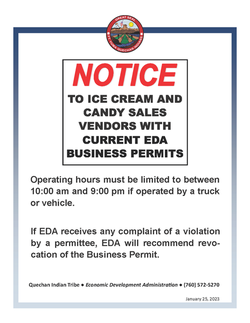Announcements
The Arizona Minority Business Development Agency (MBDA) recently honored Arizona's 2023 Champions of Minority Business Development Advocates of the Year. This prestigious award recognizes individuals or organizations with significant milestones in advocating for minority business enterprises. The Minority Business Development Agency (MBDA) is a bureau of the U.S. Department of Commerce. It's the only federal agency dedicated to helping minority-owned businesses grow and compete globally. The Arizona MBDA is operated by the Arizona Hispanic Chamber of Commerce Foundation.
Congrats to our champs! Desert Elite Basketball Clu.
The INEX series’ first Native American and Jewish race car driver, Thomas Poretsky is entering fifth grade. He loves his friends, his family, his pets (Snorlax the dog and Ginger and Marshmallow the cats), and playing Pokemon competitively. And, yes, he really loves driving fast!
He started out in Quarter Midget racing in the summer of 2022. Once the season ended, he spent that winter racing go-karts at ProKart Indoor Racing in Burnsville. Starting in the back of the pack, he worked his way up through the Kid’s League during the Winter/Spring season of 2022-23 for a strong finish on the podium in third place.
azwarriorshoops Elmer Emerson is a beast.
When he first came to the Warriors he had an immediate impact. He is not afraid of anyone, especially that's bigger than him. In his first year at NABI (Native American Basketball Invitational), he showed a preview of the type of player he is going to be. Strong, aggressive and ready to stop anyone he chooses to guard.
He will be helping Jason and Cibola High School win a region championship.
Dennis Boone is an Emergency Management, Safety and Security professional with over 30 Years’ experience. He began his career in the United States Army Military Police Corp. After receiving an honorable discharge, he was hired as a Deputy Sheriff in Washington State, where he served his community as a Road Deputy, Field Training Officer, Medicolegal Death Investigator, Deputy Coroner and Pistol/Rifle Range Instructor.
The Quechan Indian Tribe Economic Development Administration (EDA) is offering an online application for the Quechan Business Development Center (QBDC), a business incubator located in the former Pipa Market building at 403 Picacho Road, Winterhaven, California. This online application is available to vendors, merchants, and entrepreneurs (VMEs) who are enrolled members of the Quechan Tribe and are seeking early-start business launch or established business assistance.
6 week strength camp for middle and high school athletes.
Free registration
Camp begins June 13, 2023 and ends July 20, 2023; 7:30am to 10am Tuesday, Wednesday, and Thursday.
Come reunite with former classmates and schoolmates to celebrate past class achievements and endeavors.
Saturday, May 23, 2023 at the Komatke Boys and Girls Club (5047 West Pecos Road, Komatke, Arizona 85339).
For more information, contact Reunion Chair Eleanor Williams at (602) 881-9459, Vice Chair Seraphine Scottie (520) 904-1575, Secretary Janice Estrada (520) 404-1570, Treasurer Urban Giff (602) 531-3998.
The Arizona Western College Small Business Development Center (SBDC) is excited to announce the free Youth Entrepreneurial Skills Training Workshop, designed to equip you with the knowledge and skills necessary to succeed in entrepreneurship. The workshop will cover business planning, marketing, finance, and operations. It will also allow participants to network with other young entrepreneurs and receive one-on-one mentoring from experienced SBDC Business Counselors. Whether you have a business idea or want to explore your entrepreneurial potential, this workshop is tailored to empower you.
Coming soon, five versus five Co-Ed Flag-football. A five week season and single elimination tournament. Team registration will open soon. Free entry, eight team limit.
Congratulations to Quechan Indian Tribe Economic Development Administration's VME client, Tudor Montague (Founder & Head Roaster) of Spirit Mountain Roasting Company, for being awarded the prestigious 2023 San Diego & Imperial SBDC Network Rural Small Business of the Year!
The Quechan Housing Authority would like to congratulate Mr. Thomas Numkena for 20 years of hard work, time and dedication.
The Conner Byestewa Jr. Award honors his legacy by recognizing those whose contributions to tribal environmental protection build on the work that Conner started.
USEPA R9 decided to issue the Award to the Quechan Pesticide Program for its improvement and commitment to serving and protecting our community.
Issis Stevens of the Cocopah Indian Tribe took 4th place in the Arizona Interscholastic Association (AIA) Girl's Wrestling Tournament. Issis is a student of the Kofa High School Kings in Yuma, Arizona.
Shout out and congratulations to Daeja Villacana of the Quechan Tribe, a sophomore at San Pasqual Valley High School, who was named the 1A Offensive Player of the Year.
#NativePreps #Quechan
Brianna Bouts placed second and is heading to STATE!!
Jozie Shepard placed regional champ!!
Keiya and Neveed placed 4th in their class! The hard work is paying off!!
#warriorpride #warriorwrestling
Did you know that dragging chains can cause sparks and lead to wildfires? When pulling a trailer, remember to cross chains properly—it could prevent a wildfire.
For more info on preventing wildfire with equipment use, visit https://bit.ly/3X02fnN.
In-person BLS, CPR and First Aid classes are available for community members.
Location: YRMC Education Center located at 2463 S. Ave A, Yuma, AZ.
To register please call and leave a message at (929) 336-1277.
Registration hours are Monday through Friday 7:30 am to 4:00 pm.
Payments are to be made at Yuma Regional Education Center, only exact cash or check will be accepted.
Attention Ice Cream and Candy sales vendors with current EDA Business Permit:
Operating hours must be limited to between 10:00 am and 9:00 pm if operated by a truck or vehicle.
If EDA receives any complaint of a violation by a permittee, EDA will recommend revo-cation of the Business Permit.
For further information contact the Quechan Economic Administration at (760) 572-5270.
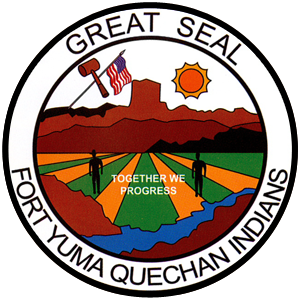


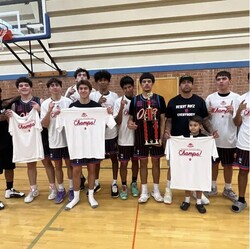
.jpg)
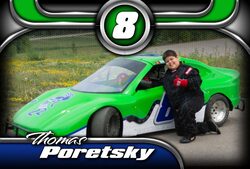

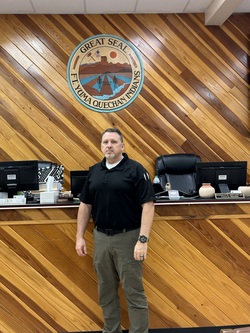
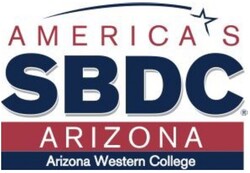
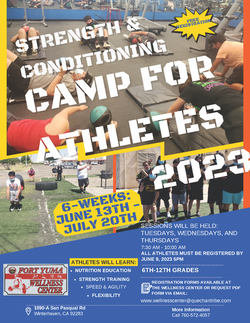
.jpg)
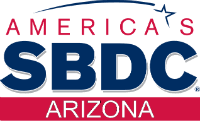
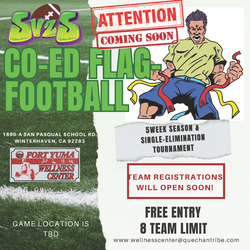
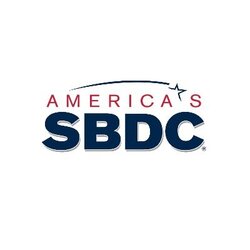
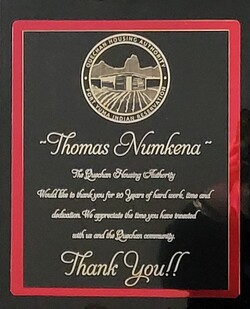

.jpg)


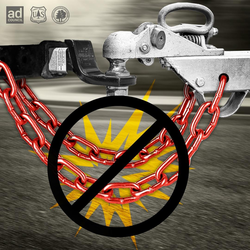
.png)
